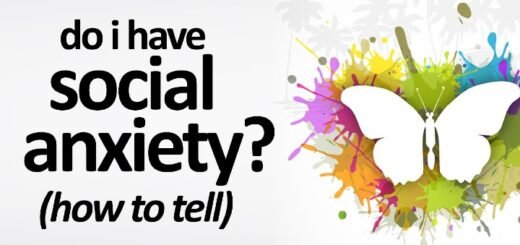Social Phobia: Exploring Its Connections to Other Disorders
In New Zealand, social phobia, or social anxiety disorder, is a significant mental health concern that often coexists with various other mental health disorders. Understanding social_1 is crucial for identifying how these comorbid conditions can exacerbate the challenges faced by individuals. For many, the fear of social interactions can lead to a cycle of avoidance, impacting their overall well-being and quality of life.
Exploring the relationship between social phobia and disorders such as depression, generalized anxiety, and substance abuse is essential for developing effective treatment strategies. Understanding social_1 can help mental health professionals in New Zealand tailor interventions that address not only social anxiety but also its associated conditions. Resources like Overcoming Social Phobia provide valuable insights and support for individuals seeking to break free from the constraints of social anxiety and improve their mental health.
Understanding Social Phobia: An Overview
Social phobia, also known as social anxiety disorder, is characterized by an intense fear of social situations where one might be judged or scrutinized by others. This condition can severely impair daily functioning, making it challenging for individuals to engage in activities such as speaking in public, attending social gatherings, or even making small talk. The fear often stems from the worry of embarrassing oneself or being negatively evaluated by peers.
The prevalence of social phobia can be significant, with studies indicating that it affects approximately 7% of the population at some point in their lives. In New Zealand, this translates to thousands of individuals grappling with the debilitating effects of this disorder. Understanding the root causes and manifestations of social phobia is essential in recognizing its relationship with other mental health disorders.
In New Zealand, resources such as SocialPhobia.org.nz provide valuable information and support for those affected by social anxiety. This website offers insights into coping mechanisms, treatment options, and community support, making it a vital resource for individuals seeking help.
Comorbid Conditions: The Overlap with Depression
Research indicates a strong connection between social phobia and depression. Individuals suffering from social anxiety often experience feelings of worthlessness, hopelessness, and isolation, which are hallmark symptoms of depression. The fear of negative evaluation can lead to avoidance behaviors, further perpetuating feelings of loneliness and despair.
In New Zealand, the stigma surrounding mental health can exacerbate these feelings. Those with social phobia may avoid seeking help, leading to untreated depression. This cycle can create a challenging situation where social anxiety and depression feed off each other, making recovery more complicated.
Therapeutic interventions, such as cognitive-behavioral therapy (CBT), can be effective in addressing both conditions simultaneously. Individuals are encouraged to seek assistance from mental health professionals who can provide tailored treatment plans. Utilizing resources like SocialPhobia.org.nz can help individuals understand the interplay between these disorders and find appropriate support.
Anxiety Disorders: The Broader Spectrum
Social phobia is part of a broader spectrum of anxiety disorders, which includes generalized anxiety disorder, panic disorder, and specific phobias. These conditions share common features, such as excessive fear, avoidance behavior, and physical symptoms like rapid heart rate or sweating.
In New Zealand, recognizing the signs of multiple anxiety disorders is crucial for effective treatment. For example, a person with social phobia may also experience panic attacks when placed in stressful situations, leading to a heightened state of anxiety. Understanding that these disorders can coexist helps in formulating a comprehensive treatment approach.
Support groups and therapy sessions that address multiple anxiety disorders can be beneficial. Sharing experiences with others facing similar challenges can foster a sense of community and reduce feelings of isolation. Online platforms, such as SocialPhobia.org.nz, can connect individuals with local support resources that address a range of anxiety-related issues.
Understanding the Link Between Social Phobia and Substance Abuse
Individuals with social phobia may turn to substances as a form of self-medication to cope with anxiety symptoms. This behavior can lead to substance abuse, compounding the original problem and creating a cycle of dependency that is difficult to break. In New Zealand, the availability of alcohol and recreational drugs can make it easier for individuals to seek temporary relief from their symptoms.
Substance abuse can mask the underlying issues of social phobia, delaying treatment and exacerbating mental health problems. The interplay between social anxiety and substance use is a complex one, often requiring specialized treatment approaches that address both concerns simultaneously.
Support systems that focus on both social phobia and substance abuse recovery are essential. Programs in New Zealand that integrate mental health services with addiction treatment can provide comprehensive support. Resources like SocialPhobia.org.nz can help individuals find the right services that cater to both their anxiety and substance use needs.
The Impact of Social Phobia on Relationship Dynamics
Social phobia can significantly affect personal relationships, leading to misunderstandings and frustration for both individuals with the disorder and their loved ones. The avoidance of social situations can lead to strained relationships, as friends and family may feel neglected or rejected due to the individual’s inability to engage.
In New Zealand, fostering open communication about mental health can help bridge the gap between those with social phobia and their support systems. By educating friends and family members about the disorder, individuals can create a more supportive environment that encourages understanding and patience.
Couples therapy and family counseling can be valuable tools for addressing the relational impacts of social phobia. These therapeutic settings provide a safe space for discussing feelings and experiences, ultimately strengthening relationships. Resources available through SocialPhobia.org.nz can guide individuals and families in seeking appropriate support.
Therapeutic Approaches for Managing Comorbid Conditions
Effective treatment of comorbid conditions, including social phobia, often requires an integrated approach. Cognitive-behavioral therapy (CBT) is a widely recognized method that can address both social anxiety and related disorders, such as depression or generalized anxiety disorder. This therapy focuses on changing negative thought patterns and behaviors, providing individuals with practical tools to manage their symptoms.
In New Zealand, mental health practitioners may also incorporate mindfulness and exposure therapies as part of a comprehensive treatment plan. These approaches can help individuals gradually confront their fears in a controlled environment, ultimately leading to reduced anxiety levels.
Support groups and community resources play a crucial role in recovery. Engaging with others who share similar experiences can provide comfort and validation. Utilizing websites like SocialPhobia.org.nz enables individuals to connect with local support networks and access valuable information on various therapeutic options.
Building a Supportive Community and Resources in New Zealand
Creating a supportive community is vital for individuals struggling with social phobia and its comorbid conditions. In New Zealand, numerous organizations and online platforms are dedicated to mental health awareness and support. These resources can help individuals find local support groups, counseling services, and educational materials.
Community initiatives focusing on mental health can foster understanding and reduce stigma. Events, workshops, and seminars can provide platforms for discussing social phobia and its impact on individuals and families. Involvement in such initiatives can empower individuals to share their stories and encourage others to seek help.
Online resources, such as SocialPhobia.org.nz, serve as a valuable tool for individuals seeking information and support. By promoting awareness and facilitating connections, these platforms can help create a more inclusive and understanding environment for those affected by social anxiety and related disorders.
FAQs
What is social phobia?
Social phobia, also known as social anxiety disorder, is characterized by an intense fear of social situations where one may be judged or scrutinized by others. This can lead to avoidance of social interactions and significant distress in daily life.
How does social phobia relate to other mental health disorders?
Social phobia often coexists with other mental health conditions, such as depression, generalized anxiety disorder, and substance use disorders. Understanding social_1 highlights how these comorbid conditions can exacerbate symptoms and complicate treatment.
What are common comorbid conditions associated with social phobia?
Common comorbid conditions include major depressive disorder, generalized anxiety disorder, panic disorder, and specific phobias. The presence of these conditions can influence the severity and treatment of social phobia.
How can comorbid conditions affect the treatment of social phobia?
Comorbid conditions can make it more challenging to treat social phobia effectively. They may require a more comprehensive treatment plan that addresses all disorders simultaneously, which is essential for achieving better outcomes.
What are the symptoms of social phobia when it coexists with other disorders?
When social phobia is present alongside other disorders, symptoms may include heightened anxiety, increased avoidance behaviors, and a greater impact on daily functioning. Understanding social_1 can help in identifying these overlapping symptoms more clearly.
What treatment options are available for individuals with comorbid social phobia?
Treatment options for individuals with comorbid social phobia may include cognitive-behavioral therapy (CBT), medication (such as antidepressants or anti-anxiety medications), and support groups. A tailored approach that considers all coexisting conditions is crucial for effective management.
Can lifestyle changes help manage social phobia and its comorbid conditions?
Yes, lifestyle changes such as regular exercise, healthy eating, mindfulness practices, and social skills training can help manage symptoms of social phobia and improve overall mental health. These changes can complement professional treatment and enhance coping strategies.
References
- Social Phobia Support Network – A comprehensive resource offering information and support for individuals dealing with social phobia and its comorbidities.
- Comorbidity of Social Anxiety Disorder and Other Mental Disorders – An academic article that reviews the prevalence and impact of comorbid conditions associated with social anxiety disorder.
- MentalHealth.gov – A government resource providing information on various mental health disorders, including the relationship between social phobia and other conditions.
- American Psychiatric Association: Social Anxiety Disorder – An authoritative overview of social anxiety disorder, discussing its symptoms, causes, and connection to other mental health issues.
- The Relationship Between Social Anxiety Disorder and Other Disorders – A research study examining the links between social anxiety disorder and other psychological disorders, highlighting comorbidities and treatment implications.




